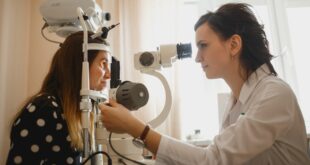Making progress in the healing of your mind or your body requires self-awareness. That may sound obvious. The overweight person can simply look in the mirror and realize there is a problem. Someone addicted to gambling could just take a peek at their bank account and know something must change. But this oversimplifies the issues. Knowledge of the problem is not the same as understanding what drives the problem.
If you are driving down the road in your car and the low oil warning light begins to flash, you might pull over and put more oil in the engine to fix the problem. But it’s only a temporary solution. There is a bigger complication with your motor. Maybe you need new piston rings or there is a small hole in your oil pan.
Answering Deeper Questions
In the same way, a person with a food addiction can tell himself, “I need to stop eating so much!” Even a five-year-old could tell you that. But a more important question to ask is, “What drives me to want to eat so much?” or “Why do I keep maxing out our credit cards?” or “Why am I driven to work to make lots of money and neglect my family?”
Answering these deeper questions provides you with self-awareness. Understanding where you are is vital to help you know where to go. It’s like a good doctor who diagnoses before she prescribes. Solutions come after clarifying problems. Self-reflection helps you get to the basis of barriers that prevent you from making progress in living a healthy life.
By looking at our emotions and thought patterns we often uncover triggers that drive us to live in unhealthy ways. Our beliefs influence our behaviors. For instance, the person struggling to control a habit of overeating may realize that when they feel lonely or discouraged they turn to food for comfort. They understand that when people in their past let them down, they came to substitute food as something that would never let them down.
Acknowledgment
This acknowledgment can open a door to self-awareness. Now they can say to themselves, “When I get lonely, I have used food as a substitute for friendships. It’s not working. I’m going to make more efforts to invest in relationships. I’ll make a list of five to ten people I can contact the next time I feel lonely.”
Some call this self-awareness emotional intelligence, which is “a powerful ability to identify, understand, and manage emotions in positive ways to relieve stress, communicate effectively, empathize with others, overcome challenges, and defuse conflict.”1 This skill can enhance your health by lowering levels of stress (which helps your blood pressure) and give you tools to deal with unhealthy thoughts that drive unhealthy behaviors.
Self-awareness is like a built-in GPS unit that helps you pin point your present location. No matter where you want to go, you must know first where you are at. You can practice developing self-awareness by taking time to relax, meditate, or go for a quiet walk when you feel overwhelmed. It’s hard to think clearly under stress. We typically fall back into old habits when we are tempted, feel pressure, or are in a pinch.
You may also find writing in a diary or journal helps you sort through confusing thoughts and emotions. Prayer helps many people calmly think at a deeper level. Talking with a trusted friend can also enhance what is going on inside of you.
When you are lost in a forest, search and rescue experts will often first say, “Don’t panic! Calm down and try to think clearly.” That’s excellent advice when you are struggling to break bad habits that destroy your health.
Curtis Rittenour writes from the Pacific Northwest.
If you liked this, you may also like Practicing Self-Care
www.helpguide.org
© 2002 - 2026, AnswersForMe.org. All rights reserved. Click here for content usage information. Answers for Me Support & encouragement for every-day life
Answers for Me Support & encouragement for every-day life



